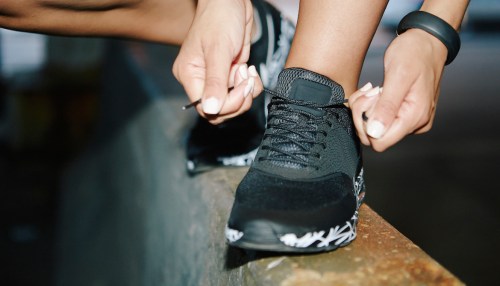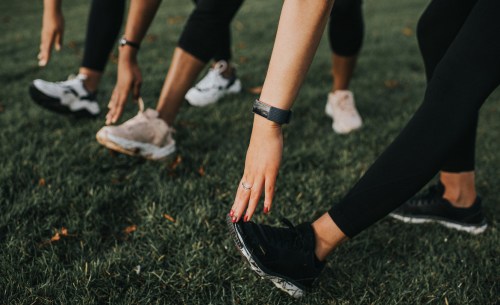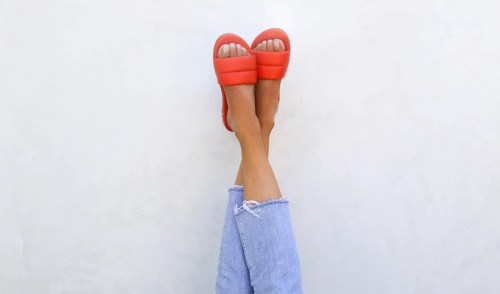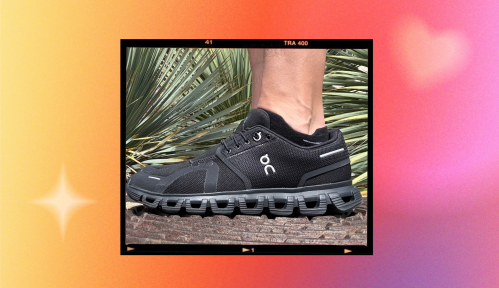Our editors independently select these products. Making a purchase through our links may earn Well+Good a commission
When you’re dealing with foot pain, it can almost always be traced back to the shoes or sneakers (or in some cases, a lack thereof) you’ve been wearing. But, with the ever-growing variety of shoes on the market, it can be tough to know what type of shoe will remedy your foot and toe woes, or whether they’ll be a fit for your favorite types of activities. Luckily, we spoke with a few podiatrists who answer questions like this every single day. If you’re wondering what the best sneakers for foot pain all have in common, read on.
Experts in This Article
board-certified podiatric surgeon and founder of Gotham Footcare
licensed chiropodist and owner at Aurora Newmarket Foot Clinic
board-certified podiatrist and founder of Step Up Footcare in New York City
The best sneakers for foot pain at a glance:
- Best for running: ASICS, Gel-Kayano 28, $160
- Best for all foot types: New Balance, Fresh Foam X 880v13, $140
- Best for flat feet: Saucony, Triumph 20, $160
- Best for walking: Hoka, Bondi 8, $165
- Best breathable: Brooks, Ghost 15, $140
- Best for arch support: New Balance, Made in USA 990v5, $150
- Best sustainable: ON, Cloudstratus 3, $180
What causes foot pain?
There are a handful of reasons our feet decide to get cranky—cold weather or a job where you’re standing all day are a couple of common culprits. But, when it comes to our shoes, lack of support and poor fit can lead to plantar fasciitis, a condition that occurs when the fascia—aka connective tissue—within the base of your foot becomes inflamed and uncomfortable. Usually, this comes about because your feet are overpronating—aka rolling inwards—as you move, which means you need a shoe with superior arch support (check out these sneakers with arch support) to combat the pain.
What to look for in shoes when you have foot pain, according to experts
Overpronation is also commonly referred to as flat feet, and according to pros, there are certain elements that people with this issue should be looking for in their shoes. Here are a few key elements to consider:
Firm midsoles
The best shoes for sore feet also provide cushioned support in the midsole to prevent the plantar fascia from caving in. If you’re not sure if your current sneaks meet this requirement, New York City Podiatrist Dr. Nelya Lobkova, DPM at Step Up Footcare, says the best way to test for a rigid midsole is to hold the front of the shoe with one hand and the back of the shoe with the other. When you try to twist the shoe side to side, there should be minimal to no twisting motion.
Roomy toe boxes
This one may seem obvious, but cramped toes can lead to a range of foot issues, such as hammer toes or Morton’s neuroma1. More space and flexibility in the toe area allows your foot to move and bend naturally.
Midfoot rockers
Dr. Lobkova also recommends a sneaker with a midfoot rocker, which ensures less pressure or impact on the heel by increasing the shock absorption of the midfoot. The rocker allows for a more efficient transfer of weight from the heel to the ball of the foot during the standing part of the gait cycle, which reduces the overstretching of the plantar fascia band during activity. Also worth noting: if you have heel pain, Dr. Lobkova advises against lightweight (less than 9 oz) sneakers, as they are more flexible and less stable for the feet.
Rigid heel counters
Another recommendation from Dr. Lobkova is to look for shoes with a sturdy, stabilizing heel. And, while prioritizing rigidity might sound counterintuitive, research from 20222 suggests that additional support in the heel helps absorb the shock from your steps and prevents issues like plantar fasciitis.
There are three brands in particular that TikTok famous podiatrist Nadia Martineau constantly recommends for people dealing with foot pain. In a recent video, she named Asics, New Balance, and Saucony as the makers of the most superior plantar fasciitis-fighting footwear money can buy. Keep scrolling to shop our experts’ recommendations of the best sneakers for foot pain.
7 of the best sneakers for foot pain
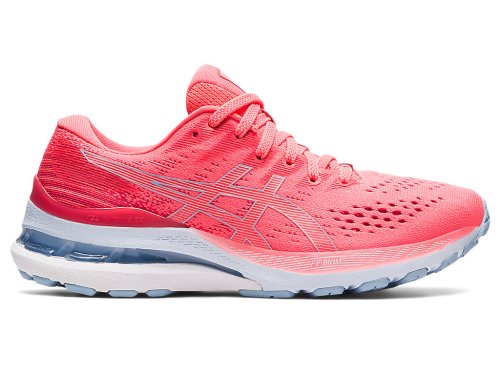
Best for running: ASICS, Gel-Kayano 28 — $160.00
Women’s sizes: 5—12
Men’s sizes: 8—15
Width options: Standard, Narrow, Wide
Colors: 15
Returns: Standard 30-day free returns with Amazon
We write about a lot of shoes on this website, but none come as highly recommended as these ultra-supportive running sneakers from Asics. “Runners will find this sneaker to have superior comfort that enhances the foot’s natural gait from heel strike to toe-off,” Miguel Cunha, a board-certified podiatrist, previously told Well+Good.
“This shoe is designed with rearfoot and forefoot gel technology that provides superior cushioning and shock absorption. This shoe incorporates exceptional durability and lightweight materials with a medial extension from the midsole to the heel for increased motion control. Last but not least, these sneakers include an additional three millimeters of midsole height to decrease tension placed on the plantar fascia and Achilles tendon,” adds Dr. Cunha.
These Asics running shoes are also great for people with flat feet (aka overpronators, who are the most at risk for plantar fasciitis) because of the arch stability they offer. Plus, they’re available in wide and narrow styles as well.
Pros
- Mesh upper for breathability
- Heel counter to keep foot stable
- Maximum cushion
Cons
- Not all color options available for wide or narrow sizes
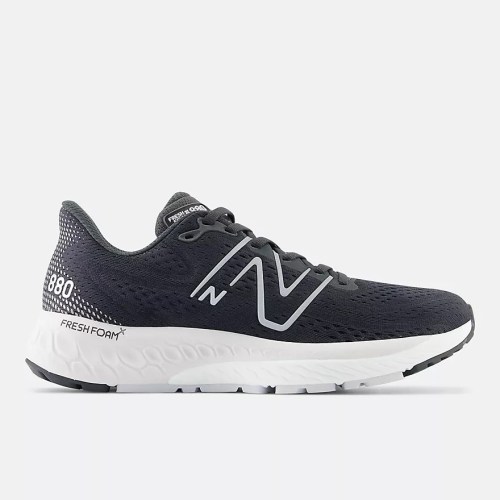
Best for all foot types: New Balance, Fresh Foam X 880v13 — $140.00
Women’s sizes: 5—13
Men’s sizes: 7—16
Width options: Standard, Narrow, Wide, X-Wide
Colors: 6
Returns: Free returns within 45 days, in new condition
Arch support aside, wearing shoes that are too small can cause foot pain that sticks around long after you untie your laces. And even if the size is technically right, if your sneaks are too snug from side to side, you’ll likely be left with problems.
New Balance’s shoes are designed with flexible fabric and wide toe boxes, which make for “comfortable lateral movement,” says Dr. Cunha. This style is made with ultra-supportive foam that’s great for stabilizing high arches and comes in regular and wide sizing so that there’s a perfect fit for every foot. Also worth noting: if you’re hoping to find some winter sneakers this style also comes in a waterproof design.
Pros
- Mesh upper for breathability
- Dual-layer midsole
- Strategic zones for support
Cons
Sign up for the Well+Good SHOP Newsletter
Get exclusive deals on wellness, beauty, fitness, and food products that have been hand-picked by our editors.
Got it, you've been added to our email list.
